Acne Treatment
Your complete guide and quick links to everything you want to know!
What Causes Acne?
Acne is caused by a combination of genetic, hormonal and local factors acting on the sebaceous glands of the skin. Sebaceous glands are the natural oil-producing glands of the skin and they are most numerous on the face.
Three major changes occur in turn in these glands that result in acne lesions:
- Skin cells at the openings of these sebaceous glands (the pores) become “sticky” and clump together, blocking their openings and preventing the oil from escaping onto the skin surface. The resulting distension of the glands produces what are commonly seen as ‘whiteheads’. Distension of these sebaceous glands can be made even worse during times of increased oil production such as at puberty and during adolescence.Blockage of the pores can also result from using cosmetics containing large-molecular size oils. Sometimes, blockages of the openings are caused both by “sticky” cells and the wrong cosmetics working in combination.
- Bacteria, which normally live in the sebaceous glands, begin to multiply when the glands become blocked and distended by the oils unable to escape.
- The multiplication of these bacteria then produces the inflammation that we recognise as red ‘pimples’.
Despite popular opinion, acne is NOT caused by dietary factors such as dairy products, chocolates and sweets, nor is it a result of unclean skin.
What Can Aggravate Acne?
- Moisturisers: Most moisturisers contain large-molecular size oils or similar occlusive agents that can block pores and cause acne. The skin of acne sufferers already contains enough oil, so a moisturiser is rarely necessary. If you believe that you do need a moisturiser, our doctor will recommend one at your initial consultation that won’t block the pores.
- Oil-Based Cosmetics: Oily foundations, many moisturisers, powder compacts, oily cleansers, etc.
- Sunscreen Creams: Choose instead a sunscreen milk, lotion or gel.
- Contraceptives: Some oral contraceptives and injectable contraceptives can aggravate acne.
- Squeezing: Do not pick or squeeze. Squeezing drives the inflammation deeper into the skin which can then lead to acne scarring.
- Stress and Poor Sleep Patterns: These probably act via hormone releases.
- Poor and Unbalanced Diets
Your Acne Treatment Program
Firstly, we need to assess whether you have mild, moderate or severe acne.
Then, we customise for you a program that will include different treatments to get the best possible results.
Your actual Acne Treatment Program will usually include one or more of the following measures:
- REMOVAL OF ALL AGGRAVATING COSMETICS FROM YOUR SKIN CARE ROUTINE: Many cosmetics (including sunscreens) contain oils and other ingredients that block the pores and either aggravate or trigger acne. In some cases, they can even be the sole cause of the acne! Such ingredients include, but are not limited to:
- isopropyl palmitate
- isopropyl myristate
- butyl stearate
- isopropyl isostearate
- decyl oleate
- isostearylneopentanoate
- isocetyl stearate
- myristle myristate
- cocoa butter
- lanolin
- various oils
These all can clog the pores and lead to ‘flare-ups’.
- GLYCOLIC ACID LOTION to unblock the pores. This is a simple to use, once daily, home application.
- ANTIBIOTICS may be prescribed initially for a short period to bring your acne under quick control.
- ORAL CONTRACEPTIVES: Some oral contraceptive formulations can help to control acne by reducing the amount of oil produced by the sebaceous glands. If you wish to take an oral contraceptive, ask your GP to prescribe one that could help to control your acne.
- Microdermabrasion
- Superficial Chemical Peels
- Blue LED Light Therapy: Blue Light LED energies can penetrate the skin to both reduce sebaceous gland activity as well as destroy active acne-causing bacteria.
- ACNE-CURING MEDICATION: For severe forms of acne, there is available on prescription a specific drug for acne but Government regulations prevent us from mentioning it by name. It has such a profound effect on acne that it’s universally regarded as THE ONLY REAL CURE for acne. The drug is taken orally for 12-16 weeks and most people require one course only. However, it must never be used during pregnancy and women must not conceive until at least 1 month after stopping it.
‘Before & After’ Acne Treatment
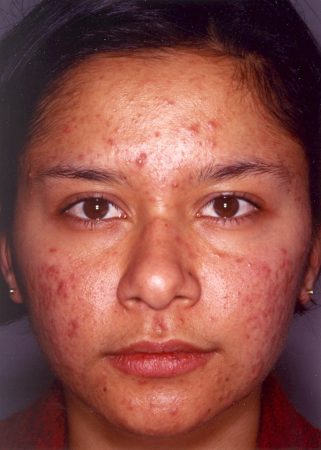
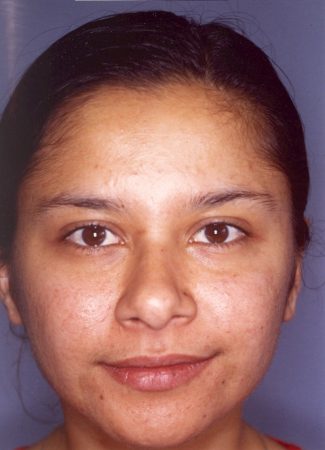
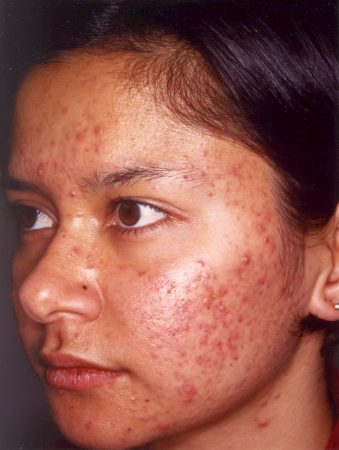
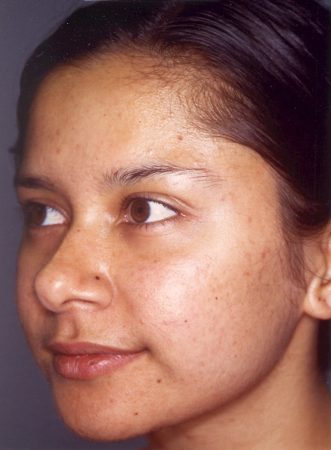
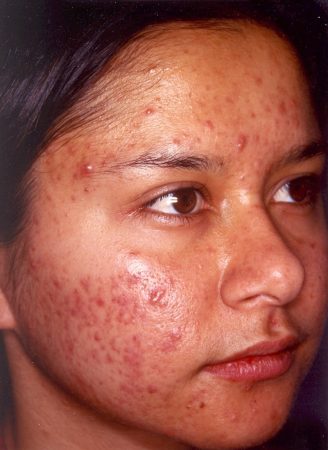
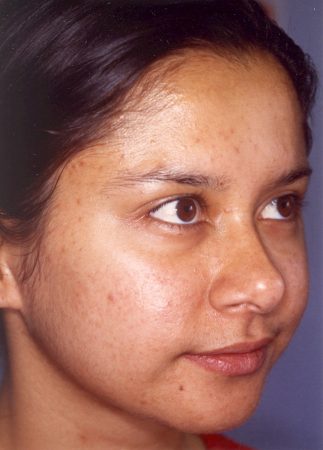
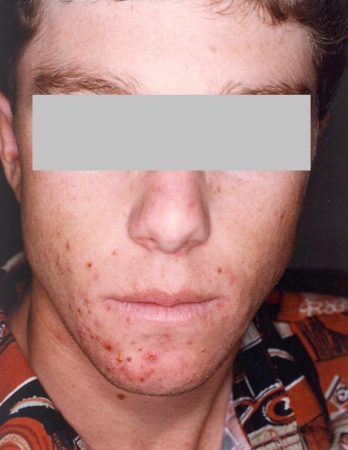
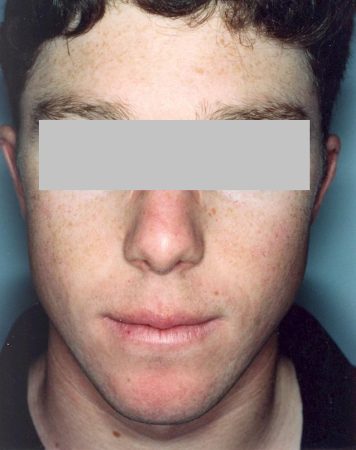
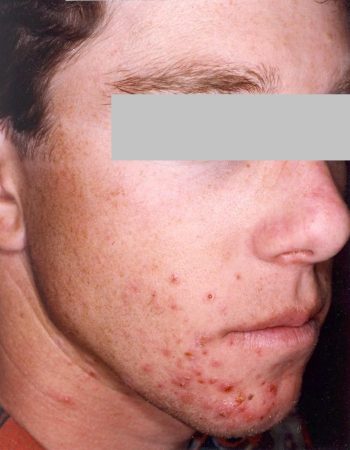
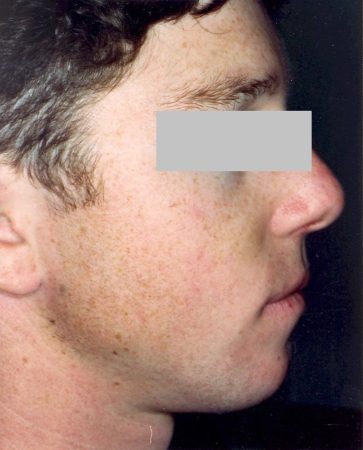
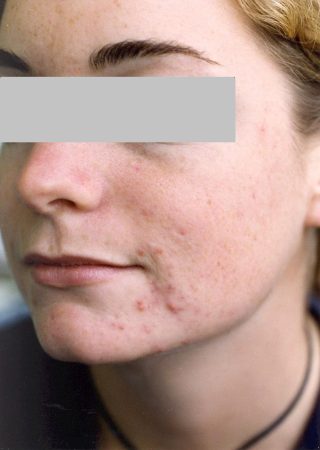
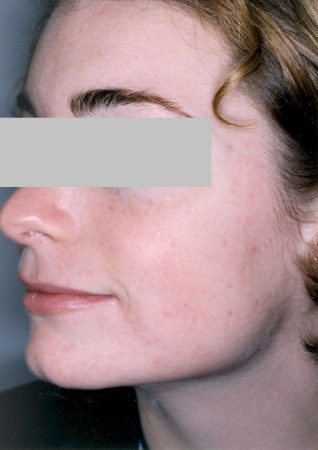
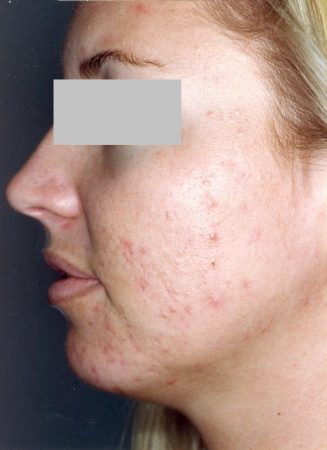
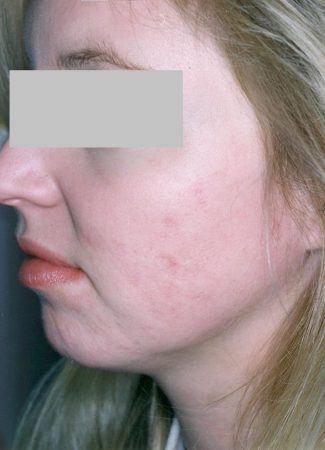
The Mistakes People Make With Acne Treatments
MISTAKE NO. 1: NOT PERSISTING WITH AN ACNE TREATMENT LONG ENOUGH
You must give a product at least 8 weeks and then keep using it if you notice an improvement. In some cases, your skin might feel a little irritated in the first couple of weeks of treatment, or even look a little worse, before it gets better.
MISTAKE NO. 2: TRYING TOO MANY PRODUCTS AT ONCE
People usually add more products when they don’t get results in the first few days of treatment.
What then happens is that they start trying different products, adding more if they don’t see results within a few days. This mistake can actually irritate the skin and worsen the acne.
MISTAKE NO. 3: OVER-SCRUBBING OR OVER-CLEANSING THE SKIN
Scrubbing the skin will actually worsen acne because it can compromise the skin’s protective barrier and increase irritation.
Remember: Acne is not caused by unclean skin, so over-scrubbing or over-cleansing will not help and may even irritate the skin.
MISTAKE NO. 4: USING THE WRONG PRODUCTS ON ACNE-PRONE SKIN
Certain ingredients in cosmetics, moisturisers and some sunscreens can clog pores and aggravate the acne, or even be the sole cause of it.
MISTAKE NO. 5: PICKING AND SQUEEZING AT PIMPLES
Squeezing pimples can drive their contents into the deeper skin layers and cause scarring.
MISTAKE NO. 6: WAITING TOO LONG TO SEE AN ACNE TREATMENT DOCTOR
Unfortunately, acne sufferers often delay seeking treatment from doctors experienced in acne and instead are prescribed topical treatments and prolonged courses of antibiotics which, without all the other essential measures, usually deliver only a partial improvement, or none at all.
Delaying an effective treatment program not only has a profound social and psychological effect on the acne sufferer, it can also lead to permanent and disfiguring acne scars.
MISTAKE NO. 7: OVER-USING OR UNDER-USING A PRESCRIBED ACNE MEDICATION
Always use the prescribed medications as instructed. Over-using it won’t help clear the acne any sooner or better. In fact, it could cause skin irritation, redness, dryness and flaking forcing you to stop it.
Under-using it by forgetting it or stopping it when the skin improves will only allow the acne to return.
If you are using a prescribed lotion, you must apply it to the whole face, not just the area currently showing pimples. Such ‘spot-treatments’ must be avoided because you haven’t addressed the area next to it where another pimple could be brewing!
MISTAKE NO. 8: STOPPING THE ACNE TREATMENT AS SOON AS IT STARTS TO CLEAR
Our doctor will advise which parts of your treatment program, if any, you can reduce once the acne has cleared. Some people need a form of maintenance to avoid recurrences.
